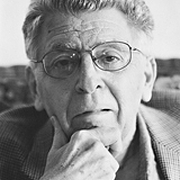Norman Cantor (1929–2004)
Auteur de In the Wake of the Plague: The Black Death and the World It Made
A propos de l'auteur
Norman F. Cantor is Emeritus Professor of History, Sociology, and Comparative Literature at New York University.
Crédit image: BookPerk
Séries
Œuvres de Norman Cantor
The Civilization of the Middle Ages: A Completely Revised and Expanded Edition of Medieval History (1964) 1,387 exemplaires
Inventing the Middle Ages: The Lives, Works, and Ideas of the Great Medievalists of the Twentieth Century (1991) 794 exemplaires
The Medieval Reader: First-hand Accounts of the Middle Ages Including Letters, Essays, State and Church Documents,… (1994) 521 exemplaires
Antiquity: From the Birth of Sumerian Civilization to the Fall of the Roman Empire (2003) 437 exemplaires
The Last Knight: The Twilight of the Middle Ages and the Birth of the Modern Era (2004) 383 exemplaires
Renaissance and Reformation: 1300-1648 (Ideas & institutions in western civilization) (1963) 142 exemplaires
Imagining the Law: Common Law and the Foundations of the American Legal System (1997) 48 exemplaires
Ideas and institutions in Western civilization 31 exemplaires
The Structure of European History: Volume III Renaissance, Reformation, and Absolutism 1450-1650 (1972) 24 exemplaires
The Structure of European History: Volume I, Ancient Civilization 4000 BC- 400 AD (1967) 24 exemplaires
The structure of European history 24 exemplaires
The Modern World: 1848 to the Present/Ideas and Institutions in Western Civilization (1963) 13 exemplaires
The English tradition : modern studies in English history 12 exemplaires
The Structure of European History: Volume VI. Twentieth Century: 1914 To the Present (1967) 12 exemplaires
Western Civilization Its Genesis and Destiny: The Modern Heritage from 1500 to t (1969) 10 exemplaires
The Structure of European History: Volume IV: The Fulfillment and Collapse of the Old Regime 1650 - 1815 (1967) 9 exemplaires
The Structure of European History: Volume V: The Making of the Modern World 1815 - 1914 (1967) 6 exemplaires
Perspectives On The European Past - Conversations With Historians Part I [with] Part II [ 2 volumes complete ] 1 exemplaire
Ancient and Medieval Europe to 1500 1 exemplaire
Western Civilization Its Genesis And Destiny Vol. II (Hardcover) (Western Civilization Its Genesis And Destiny… 1 exemplaire
Seventeenth-Century Rationalism Bacon & Descartes 1 exemplaire
Colloquium, No. 2, 1964 1 exemplaire
A special issue on "Voice" 1 exemplaire
After We Die 1 exemplaire
Étiqueté
Partage des connaissances
- Nom canonique
- Cantor, Norman
- Nom légal
- Cantor, Norman Frank
- Date de naissance
- 1929-11-19
- Date de décès
- 2004-09-18
- Sexe
- male
- Nationalité
- Canada
- Lieu de naissance
- Winnipeg, Manitoba, Canada
- Lieu du décès
- Greenwich Village, New York, USA
- Cause du décès
- Heart Failure
- Lieux de résidence
- Miami, Florida, USA (death)
Winnipeg, Manitoba, Canada (birth)
New York, New York, USA
Chicago, Illinois, USA - Études
- University of Manitoba (B.A. ∙ 1951)
Princeton University (MA ∙ 1953)
Oriel College, Oxford University (Rhodes Scholar)
Princeton University (PhD - 1957) - Professions
- medievalist
historian
writer
author
professor - Organisations
- Princeton University
Columbia University
Brandeis University
Binghamton University
University of Illinois at Chicago
New York University - Prix et distinctions
- Rhodes Scholar
- Agent
- Alexander C. Hoyt
- Courte biographie
- Norman Frank Cantor was a historian who specialized in the medieval period. He received his bachelor's degree at the University of Manitoba and his master's degree from Princeton. He spent a year at Oxford University as a Rhodes Scholar, and then earned his doctorate from Princeton in 1957. After teaching at Princeton, Prof. Cantor moved to Columbia University from 1960 to 1966; Brandeis University until 1970; SUNY Binghamton until 1976; and the University of Illinois at Chicago for two years. He went on to New York University, where he was professor of history, sociology and comparative literature. After a brief stint as Fulbright Professor at Tel Aviv University, he began to devote himself writing full-time.
Membres
Critiques
Listes
Prix et récompenses
Vous aimerez peut-être aussi
Auteurs associés
Statistiques
- Œuvres
- 67
- Membres
- 8,069
- Popularité
- #3,002
- Évaluation
- 3.4
- Critiques
- 112
- ISBN
- 112
- Langues
- 3
- Favoris
- 11

















Cantor however focusses on the plague, linking it both to bubonic plague and to anthrax. He discusses how its ravages had an impact on every possible area of life: on internal and external politics, on royal, noble and yeoman dynasties, on class structures, economics, religious thought, on war. He looks at how earlier outbreaks of such plagues affected the decline of the Roman Enpire. He discusses how scientific thought at the time had little or nothing to offer in the fight against the disease. There's a lot here.
It's an interesting, often fascinating read. It is however a little disjointed, as though Cantor himself could nor decide how best to organise his material. The other jarring note comes when he frequently refers to the 'ranches' of sheep and cattle of the farms and estates of central and northern England.
However, as an introduction to aspects of medieval European history and the mindset of its inhabitants, this is an accessible and readable account.… (plus d'informations)